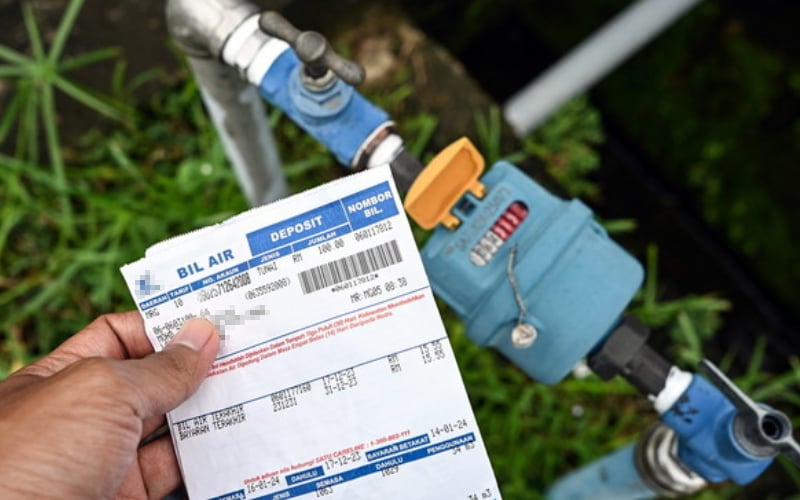
PETALING JAYA: An economist has backed the decision to raise water tariffs for domestic users in the peninsula and Labuan, describing it as a good investment given the expenses involved in supplying clean water.
Geoffrey Williams of the Malaysia University of Science and Technology said supplying clean water and treating wastewater is expensive, and that someone needs to foot the bill for the infrastructure.
“Clean water might be a human right but it is not a public good; it has to be paid for by someone and the best way is a combination of charges to consumers to encourage responsibility in water use as well as public investment to ensure safety, stability and security of supply,” he told FMT.
Williams, who described the higher tariffs as “small increases”, said the move to review the rates every three years is necessary.
He pointed out that states like Pahang and Perlis have not reviewed their rates for 38 years and 26 years, respectively, and that Malaysia has the fourth lowest average tariff among Asean countries at RM1.22 per cubic metre.
“Other countries have higher rates, including Vietnam at RM1.37 per cubic metre, Thailand (RM1.68), the Philippines (RM2.92) and Singapore (RM5.88).”
Last Wednesday, the National Water Services Commission (SPAN) announced that water tariffs for domestic users in the peninsula and Labuan would be raised at an average of 22 sen per cubic metre from Feb 1.
SPAN said this increase is still low as the cost of providing water supply services is actually RM1.75 per cubic metre based on 2022 records.
Commenting on SPAN’s statement that the tariff hike would not cover the actual cost of water services, Williams said this is another case of unsustainable dependence on subsidies.
“The changes are small overall and are part of the subsidy rationalisation that everyone has been calling for. So, people must be objective and patient.
“While this might have an effect on the cost of living, it will be small and, again, it highlights the need to focus on raising incomes and targeting subsidies to improve affordability, especially for those in low-income and middle-income groups.”
Meanwhile, International Islamic University Malaysia’s Ahamed Kameel Mydin Meera said the B40s would still be given subsidies despite the tariff increase, but caution must be taken.
“There needs to be a body that includes NGOs to mutually agree on any tariff increases,” he said.
“The utilities, including water and power, should never be allowed to go private, particularly with foreign ownership.”
Addressing concerns about wastage through water subsidies, Kameel suggested a model like Selangor’s, where water is initially free up to a certain amount, and tariffs rise with increased consumption. - FMT



No comments:
Post a Comment
Note: Only a member of this blog may post a comment.